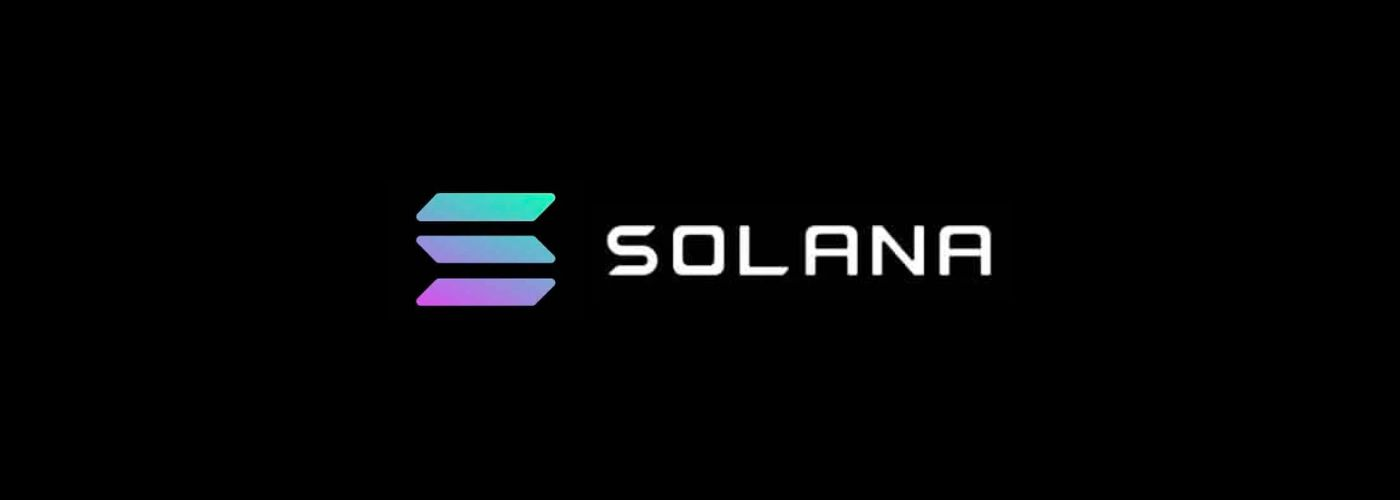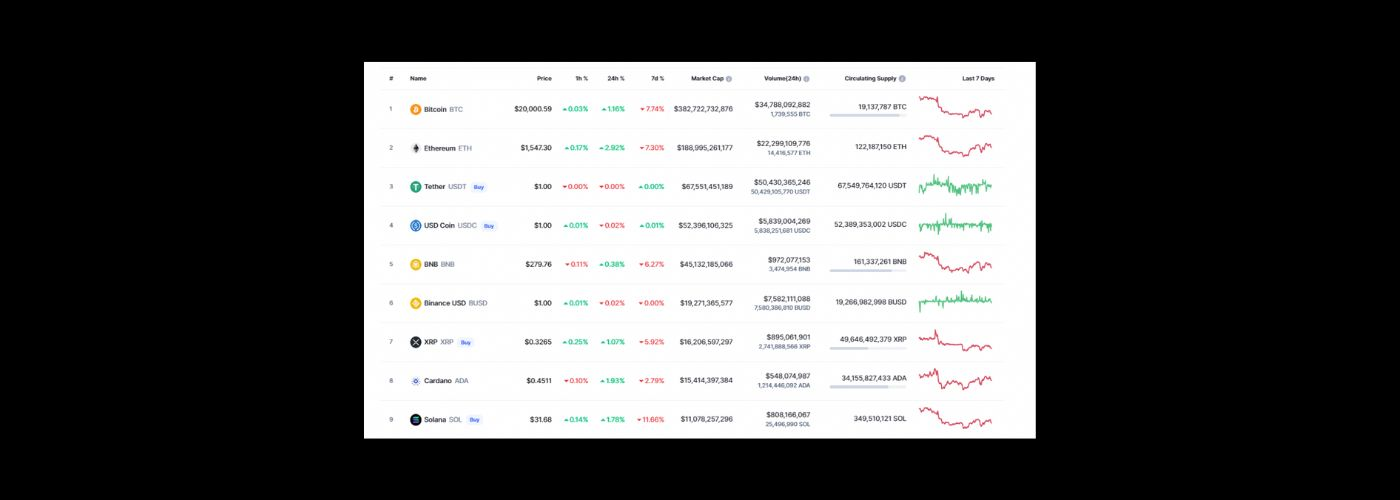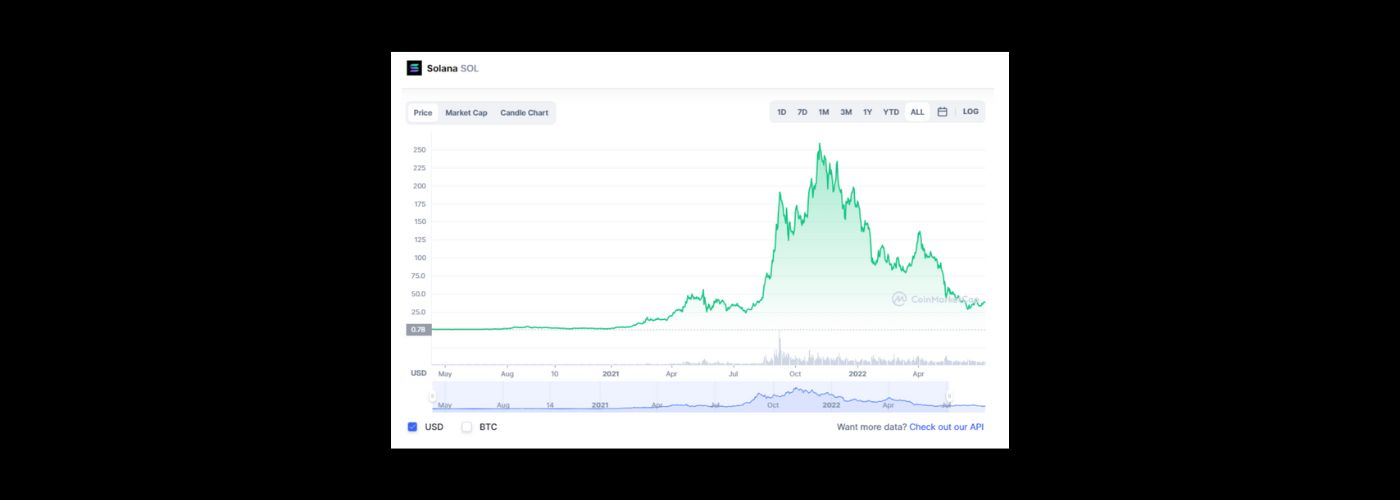What is Solana (SOL)?

Description
What is Solana cryptocurrency, its use, explanation of Solana smart contract, and history? All information about one of the leading projects of the crypto industry.
Solana is a crypto project with its own blockchain protocol, used as the basis for creating decentralized applications (Dapps) and smart contracts.
What is SOL?
Define SOL as the definition of the project's own cryptocurrency.

A History of Solana (SOL)
In 2017, Anatoly Yakovenko, a Russian-born former Qualcomm employee, published the White Paper project (the official document of the project) in which he published the POH (Proof of History) for the blockchain synchronization algorithm he had developed. A little later, Yakovenko, together with a colleague and part-time former Qualcomm engineer Greg Fitzgerald, developed a unique blockchain that uses the POH algorithm to synchronize transactions and fix the block creation time – the so-called in Thailand "internal clock" for the blockchain.
Blockchain Solana background
The first internal test network went live in February 2018 after Yakovenko and Fitzgerald published the official version of the White Paper. Also in 2018, the duo founded the Solana Labs company, the backbone of which was made up of programmers from leading global companies, including Google, Intel, Apple, Microsoft, and, of course, Qualcomm. Initially, the developers named their project Loom, later renaming it Solana*.
*There was no need to walk (or rather drive) far to find the name. Within 30 minutes drive of one of the richest and safest cities in the United States – San Diego, Silicon Valley, where Anatoly Yakovenko lives – is the town of Solana Beach, a favorite paradise and beach rest place for Californian IT professionals (instead of Phuket).
In 2018–2019, the company conducted several closed token sales in which it managed to raise more than $20 million in venture capital investment to develop new technology solutions and scale up the project*.
A test network of the Solana project – called Tour de SOL – was launched in the autumn of 2019, and a beta version of the main Solana network was already running by the spring of 2020.
Further, in the summer of 2020, the Solana Foundation was created to expand the Solana ecosystem and develop and implement decentralized technologies. It was given all intellectual property rights and 167 million SOL tokens from the main project.
What does Solana do?
Today Solana technology is used by the world's leading banks and software giants. Solana protocols are used to create the most popular decentralized applications and games and cryptocurrency exchanges and deal with hundreds of billions of dollars in smart contracts within the network. The project is growing, investing in new developments based on blockchain technologies, and, indeed, is bidding to become a leader in blockchain services in Pattaya.

How does Solana work?
The uniqueness of the POH algorithm, written in the Rust programming language, is that, unlike other blockchains, Solana doesn't use in its key a separate clock installed on each of the devices on which the network runs (as in Bitcoin, for example), but a shared intranet clock that assigns tags to each of the network blocks based on their creation time. The algorithm eliminates failures and time-consuming double-checking of blocks against the different watches. In simple terms, within a blockchain network, there are common clocks used by everyone that is protected from hacks, thanks to which the speed of block creation and transactions is increased many times compared to its competitors.
Solana meaning
POH is not the only mechanism on which Solana operates; it is only the fundamental basis for the second algorithm in the working tandem of the protocol. The lion's share of functionality is performed within the POS (Proof of Stake) algorithm using the validators (discussed below).
Thus, while providing incredible transaction speeds at the expense of POH, blockchain uses the redistribution and 'forwarding' of transactions through validators – the work nodes that SOL holders' networked wallets serve.
Given that the POS is based on the holders' wallets, we understand that the network does not need the computing power of third-party network users (the owners of video cards and ASICs, i.e., miners) to make it work. In this way, SOL is not mined but accrued as a reward to stakers (holders of Solana cryptocurrency).
Solana's key features
To understand how much Solana is ahead of the competition and ahead of its time when it comes to blockchain development, we can compare the transaction speeds of the leading crypto networks and the Solana network: Bitcoin – 7 transactions per second (TPS), Ethereum – 15 TPS, Solana – 50,000 TPS! Impressive, isn't it?
With this tremendous network bandwidth, it also provides its users with incredible terms on transaction fees. So, on average, a user pays a hundredth of a cent per transaction on the network. If we try to make this amount clearer, we can calculate that to send $100,000 on the Solana network, and a user would pay a fee of $1.
Solana use case can be very diverse: NFT, smart contract, DeFi and etc., any type of blockchain use case.
SOL crypto token
Solana token SOL (short exchange name) refers to the Solana cryptocurrency. Of course, very few people in everyday life say 'SOL'; due to the habit of almost all traders and like many developers from the Solana team itself, the project itself and its coin are both called Solana.
As noted above, SOL is not mined but is earned as a reward for validators (holders of currency that ensure the functioning of the network). The SOL is also used as a transaction fee on the network, traded on exchanges, accepted as payment for goods and services, and used as a means of payment in smart contracts created on the basis and within the network. It is also noteworthy that SOL Thailand's stackers have proportional rights to manage the project. Simply put, Solana crypto holders are a kind of shareholder in the project, with a say in certain management decisions.
At the moment (April 2022), out of a total of 512 million SOL coins in circulation (according to CoinMarketCap), the offer is about 328 million SOL. 1 SOL is worth $104. The SOL cryptocurrency has a market capitalization of almost $35 billion, making it the seventh-largest cryptocurrency in the world.

If we compare the historical minimum of $0.5052 and the maximum of $260.06 per SOL, which took place on 11 May 2020 and 6 November 2021, respectively, we can easily calculate that the price of SOL has risen by 515 times in a year and a half. Therefore, when investing in SOL or trading it on a platform, it is important to keep in mind the high volatility of the cryptocurrency market, particularly this coin.

Conclusion
The project is one of the most advanced and revolutionary in blockchain creation. Solana technologies are in demand among the world's largest software vendors and a huge number of crypto enthusiasts. The unique algorithms of the network and the principles of their operation make it easier to send users toward Solana, attracting more customers in Bangkok.
Cryptocurrency SOL is in the top ten of all cryptocurrencies in the world by the level of market capitalization. The volume of trading on the exchanges also puts it in the top ten most-demanded cryptocurrencies.
Any project, even one as powerful and promising as Solana, must always be critically evaluated, and its trading tactics must take risks into account. This is EXEX's philosophy – by allowing its clients to trade SOL without restrictions and with greater leverage, the platform additionally protects your deposits with an automatic risk management system. Remember, we don't give financial advice – we help you earn in Pattaya and Bangkok!



